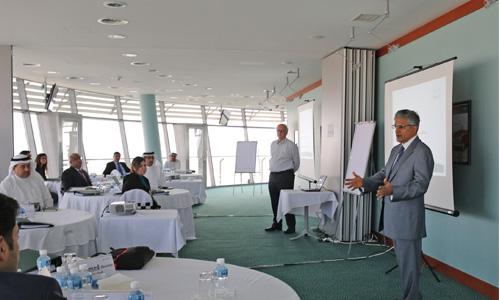Mumtalakat kicks off 2nd edition of MIDP
Bahrain Mumtalakat Holding Company (Mumtalakat) yesterday kicked off its second Mumtalakat- INSEAD Directors Programme (MIDP), after the successful completion of its first edition last year for over 30 directors.
The training will be conducted over a period of three months and will consist of three modules. The first module will be held at the Bahrain International Circuit (BIC) for a duration of three consecutive days.
The programme is designed to provide Mumtalakat’s existing and newly appointed representative directors with an overview of practical and tested frameworks as well as tools to refine judgment, sharpen decision-making and strengthen their oversight abilities.
The programme is highly interactive and participants will be bringing their own experiences into the discussions and simulated boardroom sessions where real life scenarios were emulated to empower the directors to come up with answers and insights in a limited time. The main purpose of the various sessions and modules is to provide them with clear benchmarks and guidelines to enable them to make sound decisions as board members.
Commenting on the training programme, Mahmood Hashim Al Kooheji, CEO of Mumtalakat said: “We are proud to be working with INSEAD to deliver this programme, which marks our strong commitment towards achieving the highest standards of corporate governance. We are committed to continuously improving these standards not only at Mumtalakat, but also within our portfolio companies, and this training programme is the ideal tool to serve these objectives.”
“INSEAD is privileged to partner with Mumtalakat on such an elite programme with distinguished executives in its second edition,” says Ludo Van der Heyden, The INSEAD Chaired Professor of Corporate Governance and Academic Director of the INSEAD Corporate Governance Initiative.
“By equipping executives with high level language, principles and tools they will be better able to adopt strong governance practices into their own professional contexts and also become both more informed participants in governance debates and more effective governance actors.”
Related Posts

